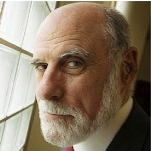There are hundreds of applications for generic words in ICANN’s new top level domain program. They include .BOOK, .MUSIC, .CLOUD, .ACCOUNTANT, .ARAB and .ART. Some of the applicants for these domains have chosen to make direct use of the name space under the TLD for their own sites rather than offering them for broad general use. Amazon, for example, would probably make .BOOK an extension of its online bookstore rather than part of a large-scale domain name registration business; Google would probably make .CLOUD an extension of its own cloud computing enterprises.
This is really no different from Barnes and Noble registering BOOK.COM and using it only for its bookstore, Scripps registering FOOD.COM and controlling the content of the site, or CNET registering NEWS.COM and making exclusive use of the site for its own news and advertising. Nor is it terribly different from the .MUSEUM top level domain.
Yet these proposals have generated a loud chorus of objections from competing businesses. They have dubbed these applications ‘closed generics’ and shouted so loud that ICANN is once again considering changing its policies in mid-implementation. ICANN staff has called for public comment and asked specifically whether it should change its rules to determine what is a ‘generic term’ and whether ICANN should enlarge even further its role as as a top-down regulator and dictate whether certain business models can be associated with certain domain names.
A group of Noncommercial Stakeholders Group (NCSG) members have weighed in with some badly-needed disinterested public comment. It isn’t about ‘open’ or ‘closed,’ they maintain, it is about the freedom to innovate.
As NCSG stakeholders, our position is driven neither by paying clients nor by an interest in the success of specific applications. It is based on a principled commitment to the ‘permissionless innovation’ that has made the Internet a source of creativity and growth. Our aim is to maximize the options available to DNS users and to minimize top-down controls. We support the freedom of individuals and organizations to register domains and use them legally in any way they see fit. We support experimentation with new ideas about what a TLD can do. We see no reason to impose ex ante restrictions on specific business models or methods of managing the name space under a TLD.
The group warns ICANN of the danger of giving itself the power to decide what qualifies as a ‘generic word’ and rejects any attempt to retroactively create new policies that would dictate business models for TLD applicants. Hopefully ICANN’s board will be able to look past the self-interested cries of businesses that want to eliminate competitors and consider the public interest in Internet freedom. The comments and list of supporters are available at this link.

 As you know, Eli Dourado and I have been keeping close tabs on the World Conference on Information Technology (WCIT), which will take place this December in Dubai. We started
As you know, Eli Dourado and I have been keeping close tabs on the World Conference on Information Technology (WCIT), which will take place this December in Dubai. We started 
 The Technology Liberation Front is the tech policy blog dedicated to keeping politicians' hands off the 'net and everything else related to technology.
The Technology Liberation Front is the tech policy blog dedicated to keeping politicians' hands off the 'net and everything else related to technology.